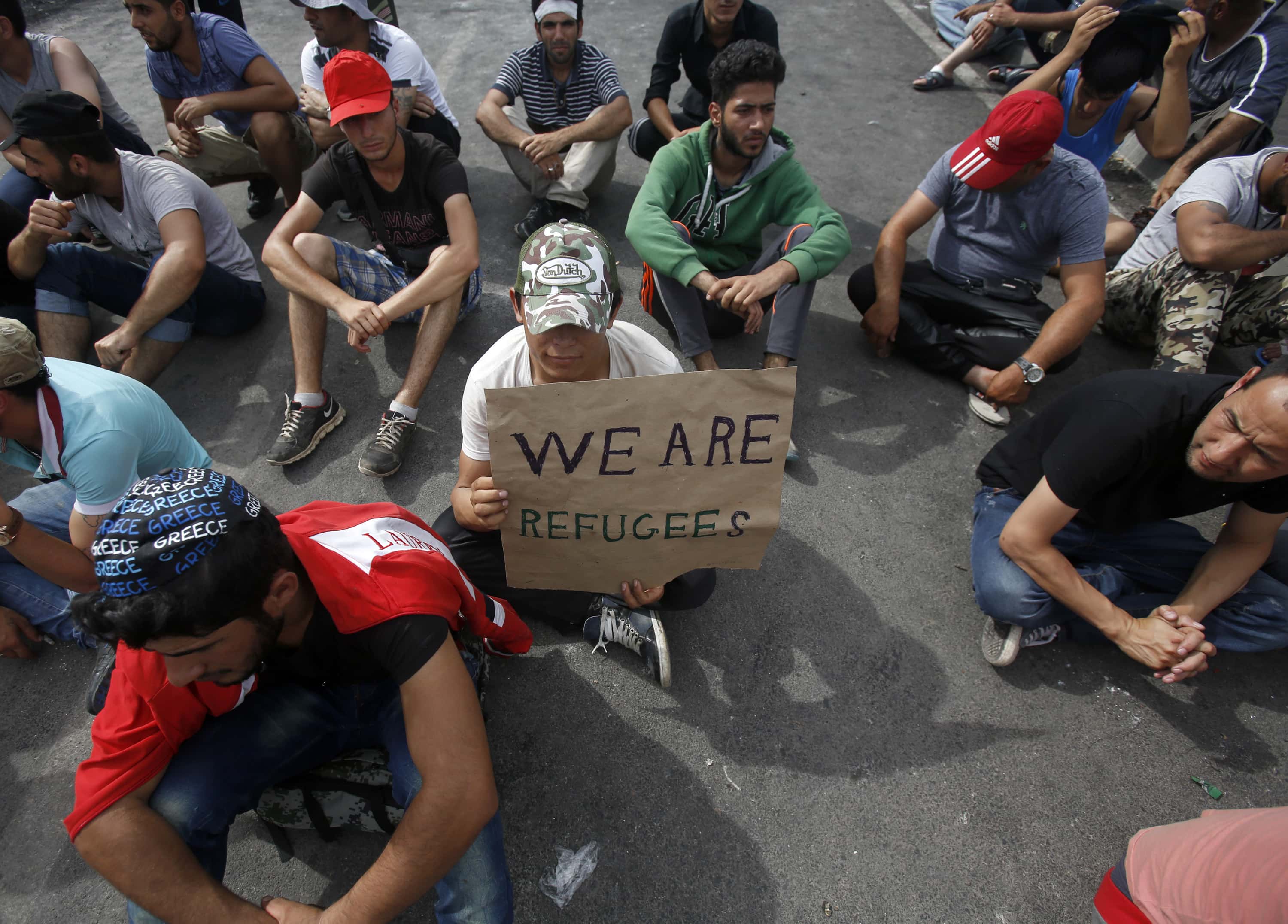The HCLU is calling on the government to provide refugees with basic services, in addition to giving them information packages about the asylum procedure, available health centres, and other relevant information. It also calls upon authorities to allow journalists and human rights groups to do their jobs freely.
This statement was originally published on tasz.hu on 14 September 2015.
The increasing refugee crisis of the past months is not only a Hungarian problem. However, handling the refugee situation in Hungary is a Hungarian task.
The Hungarian government fails to accomplish its duties. Instead, in response to the crisis, it takes the most inhumane steps, like building a razor-wire fence along the Serbian border, forcing refugees to spend the night outside, sleeping in meadows in 10-degree weather, and making laws that severely restrict our human rights.
The state’s tasks are carried out by hundreds of civil volunteers, while tens of thousands are providing material support. It is not the responsibility of civil society to provide food and medical services to refugees, or distribute heated tents, warm clothes and blankets so that nobody is frozen to death.
HCLU has made an attempt to list everything it demands from the Hungarian government:
1. Ensure basic services to refugees and the fastest possible administration of their case.
a. Provide adequate healthcare services in every transit zone or other place designated for reception or even compulsory waiting.
b. Provide food and drink, respecting religious prescriptions, in every transit zone or other place designated for reception or even compulsory waiting.
c. Maintain appropriate temperatures and provide beds, blankets and adequate hygienic conditions, like garbage cans, basins and sanitary facilities, in every transit zone or other place designated for reception or even compulsory waiting.
2. Refugees arriving Hungary are often lacking genuine information, therefore they should be provided with a package of information – possibly in their mother tongue – when they first meet the authorities.
The information package should contain comprehensible materials concerning at least:
a. the asylum procedure in Hungary
b. available legal support
c. available healthcare services
d. the location and accessibility of reception centers
e. refugee rights and means of legal redress
f. the accessibility of state and civil organizations dealing with refugees
3. Refugees should receive assistance in getting to their destination (reception centers). Scheduled services cannot accommodate several thousand people. Hence, their transportation should be solved.
4. Civil volunteers should be contacted, as they are more up-to-date than any state bodies.
5. The press should be allowed to do its job. Journalists have the right to enter and report on reception centers and transit zones. The state must ensure the conditions of freedom of information, necessary for the development of democratic public opinion.
6. Hungarian and international human rights organizations should be allowed to do their job. They must be allowed to enter reception centers and transit zones in order to perform their tasks related to the mitigation of the humanitarian crisis.
7. The government must accept the fact that a common European response should be found to the refugee crisis, and it should inform the public about it. As part of this, the Hungarian government must accept that Hungary should take a share in admitting refugees, in proportion to its resources.
8. The government must stop its hate campaign! Giant posters and other hostile materials consume large resources, and instead of providing solutions, they only aggravate the situation of refugees. Limited resources should be spent on providing better care to refugees and accelerating the asylum procedure.
9. The fence along the southern border must be demolished to prevent further serious injuries.
10. The integration program of refugees should get started. Although many refugees are leaving the country, the number of those staying is also increasing. Access to Hungarian language instruction and public and adult education, as well as housing and integration in the labor market, require concerted state action.
11. The government must revise its policies concerning its asylum procedure. It should not consider Serbia a safe third country. Serbia is not regarded by the UN as a country providing safe haven. The Hungarian state should not contribute to the deportation of any people to places where they are threatened by persecution or war.
12. Demands to the government also follow from the Fundamental Law created by the same government.



